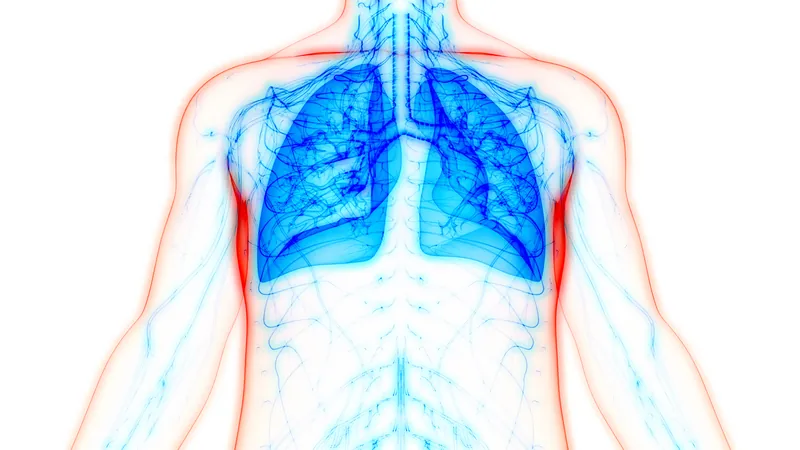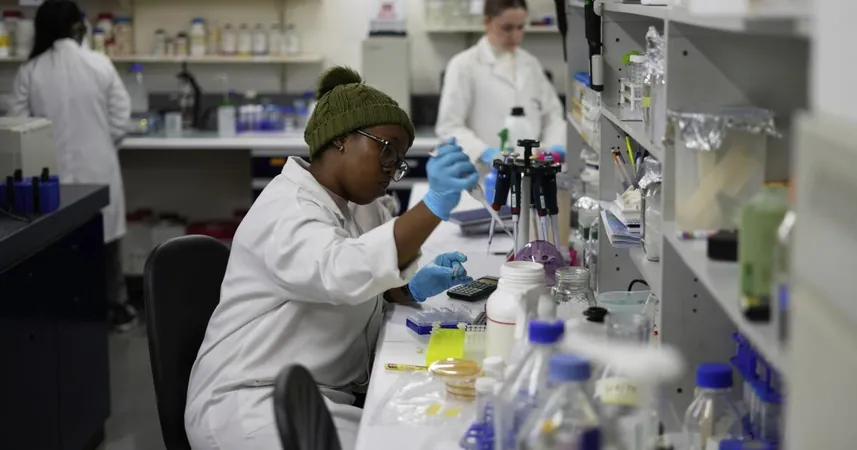
Revolutionary Lung Recipient Scoring System Dramatically Boosts Patient Survival Rates!
2025-05-19
Author: Sarah
A groundbreaking scoring system for lung transplant candidates is revolutionizing patient outcomes in the U.S. Those on the waiting list are now less likely to face death or be removed from the list while awaiting a life-saving lung.
In a landmark case back in 2017, Miriam Holman, a young patient in desperate need of a lung transplant, challenged the existing allocation policy, claiming it unfairly favored local candidates over those in more critical need from farther afield. Previously, available donor lungs were allocated primarily to local patients, even if they were less sick than individuals from other areas.
The aftermath of this case led to a significant overhaul. Authorities extended the donor allocation radius to 250 nautical miles and introduced the Composite Allocation Score (CAS) in 2023—an innovative system designed to prioritize medical urgency in organ allocation.
The CAS assigns scores to candidates based on nine critical factors, such as the severity of their condition, survival probabilities without a transplant, and practicalities like travel efficiency to the transplant center.
According to recent findings presented at the 2025 American Thoracic Society International Conference, this initiative has had a substantial impact on patient survival. In a review of 24,368 patients, the analysis revealed that before the changes in 2017, a concerning 11.2% of waiting patients either died or were delisted. This number has since plummeted to 8.4% post-2017, and an astonishing 4.1% following the implementation of the CAS.
Even more alarming, among the sickest 5% of patients, death rates were strikingly high before 2017 at 34.5%. This figure decreased to 22.2% after the policy changes and then dramatically fell to just 6.5% after CAS was adopted.
Lead researcher Mary Raddawi from Columbia University Irving Medical Center expressed enthusiasm about the results: "Any change we make to the allocation system aims to improve outcomes, especially for our sickest patients. These results confirm we’re on the right path." The data reveals that the CAS system reduces the risk of death or delisting by more than three-fold compared to the system before 2017, and an astonishing eight-fold for critically ill patients.
Raddawi emphasized the importance of focusing on multiple factors, including medical urgency, stating, "It makes sense that waitlist mortality would decrease for our sicker patients—but seeing the actual numbers is incredibly gratifying."
This revolutionary scoring system not only champions fairness in organ allocation but is also saving lives, marking a significant advancement in lung transplant medicine!






 Brasil (PT)
Brasil (PT)
 Canada (EN)
Canada (EN)
 Chile (ES)
Chile (ES)
 Česko (CS)
Česko (CS)
 대한민국 (KO)
대한민국 (KO)
 España (ES)
España (ES)
 France (FR)
France (FR)
 Hong Kong (EN)
Hong Kong (EN)
 Italia (IT)
Italia (IT)
 日本 (JA)
日本 (JA)
 Magyarország (HU)
Magyarország (HU)
 Norge (NO)
Norge (NO)
 Polska (PL)
Polska (PL)
 Schweiz (DE)
Schweiz (DE)
 Singapore (EN)
Singapore (EN)
 Sverige (SV)
Sverige (SV)
 Suomi (FI)
Suomi (FI)
 Türkiye (TR)
Türkiye (TR)
 الإمارات العربية المتحدة (AR)
الإمارات العربية المتحدة (AR)